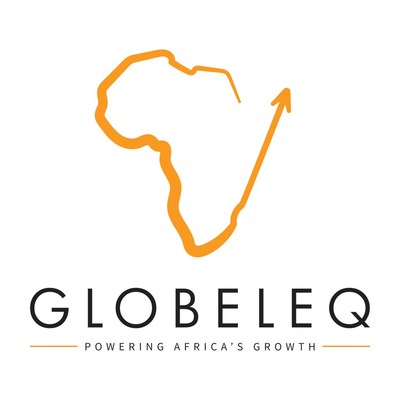LONDRES et LE CAIRE , 14 octobre 2021 /PRNewswire/ — Globeleq, le principal producteur indépendant d’électricité en Afrique, a finalisé l’acquisition de la centrale solaire photovoltaïque de 66 MWc d’ARC for Renewable Energy S.A.E (ARC) située dans le parc solaire de Benban près d’Assouan, en Égypte. 
La centrale ARC a été développée par le consortium SECI Energia, Enerray et Desert Technologies dans le cadre du deuxième round du programme de tarifs de rachat du gouvernement égyptien. La centrale a été mise en service le 4 novembre 2019 et fournit de l’électricité propre à l’Egyptian Electricity and Transmission Company (EETC) dans le cadre d’un contrat d’achat d’électricité de 25 ans. Le projet a été financé par la Société Financière Internationale (SFI), l’actionnaire de Globeleq, CDC Group (CDC), la Banque Asiatique d’Investissement pour les Infrastructures (BAII), Europe Arab Bank et Finance in Motion.
En tant que seul propriétaire d’ARC, Globeleq se chargera également de la gestion de l’actif et supervisera l’entreprise chargée de l’exploitation et de la maintenance, GILA Al Tawakol. Au cours du processus d’acquisition, Globeleq a aidé les développeurs d’origine et les prêteurs à obtenir le certificat final de prise en charge (« Take-Over Certificate ») dans le cadre des contrats EPC et à s’assurer que le projet fonctionne de manière optimale. ARC sera connecté au centre de conduite des énergies renouvelables de Globeleq au Cap en Afrique du Sud et bénéficiera de la vaste expérience de son équipe d’exploitation basée en Afrique, complétée par une équipe basée au Caire et à Assouan. L’équipe locale sera dirigée par Ghada Darwish en tant que responsable Égypte à Globeleq.
L’Égypte est l’un des plus grands marchés pour les projets d’énergie renouvelable en Afrique et vise à achever 42% de production d’électricité à partir de sources renouvelables d’ici 2035. Le pays est un marché cible clé pour Globeleq et cette acquisition fournit une plateforme pour soutenir d’autres investissements dans le pays, notamment dans le photovoltaïque, l’éolien, le stockage d’énergie par batterie et, à plus long terme, le dessalement d’eau de mer et l’hydrogène vert.
Mike Scholey, PDG de Globeleq, a indiqué : « Cette transaction est une excellente opportunité d’acquérir un actif opérationnel avec une équipe établie. Le gouvernement égyptien a fixé des objectifs ambitieux en matière d’énergies renouvelables et, en tant que l’un des plus grands investisseurs dans ce domaine en Afrique, nous sommes heureux d’aider l’Égypte à déployer davantage de projets d’énergies renouvelables ».
L’ambassadeur britannique en Égypte, Gareth Bayley OBE, a déclaré : « Je suis heureux de constater l’engagement de Globeleq sur le marché égyptien des énergies renouvelables. Alors que le Royaume-Uni s’apprête à accueillir, dans deux semaines à peine, la COP26, une conférence historique sur le changement climatique, des investissements comme celui-ci mettent en lumière la croissance verte, au cœur du programme commercial du Royaume-Uni. Nous continuerons à soutenir l’ambitieuse stratégie énergétique durable de l’Égypte. Félicitations à Globeleq pour cette étape importante, et je me réjouis de voir beaucoup d’autres investissements britanniques de grande valeur et de haut niveau dans le secteur égyptien des énergies renouvelables à l’avenir ».
Bertrand de La Borde, responsable mondial de l’énergie et des mines à la SFI, a commenté l’événement : « En tant qu’investisseur stratégique à long terme ayant d’excellentes performances opérationnelles dans le domaine des énergies renouvelables, nous soutenons pleinement l’acquisition menée par Globeleq. L’entreprise continue de créer des entreprises d’énergie durables, qui soutiennent les objectifs de développement durable des Nations Unies en investissant dans une production renouvelable et compétitive ».
Holger Rothenbusch, directeur général et responsable des infrastructures et du climat de CDC Group, a déclaré : « L’engagement de Globeleq à augmenter l’offre d’énergie renouvelable à travers l’Afrique est vital et nous sommes fiers d’emprunter cette voie ensemble. L’acquisition d’ARC a permis d’achever la construction de l’usine, d’obtenir des performances optimales et de bénéficier de la présence d’un investisseur stratégique à long terme ayant fait ses preuves en Afrique.
Globeleq joue un rôle clé dans le déblocage de l’énorme potentiel renouvelable de l’Afrique. L’entreprise investit dans le secteur depuis 2002 et, depuis 2014, exploite certaines des toutes premières centrales solaires et éoliennes à grande échelle en Afrique du Sud. Globeleq poursuit son expansion et possède et exploite actuellement neuf projets solaires photovoltaïques et éoliens sur le continent. L’entreprise est sur le point de mettre en service sa centrale solaire de 52 MWc à Malindi, au Kenya, et a récemment donné le coup d’envoi d’un projet de solaire photovoltaïque avec stockage d’énergie par batterie de 19 MWc et 2 MW /7 MWh au Mozambique, où elle s’est également préqualifiée pour un appel d’offres solaire et développe deux nouveaux projets éoliens.
Logo – https://mma.prnewswire.com/

